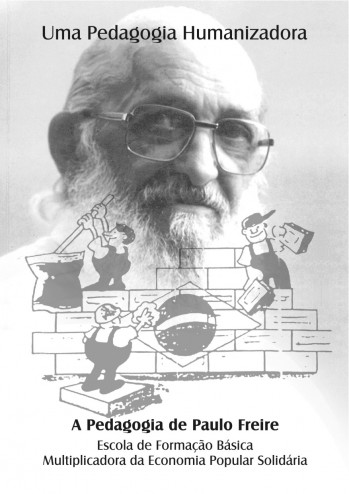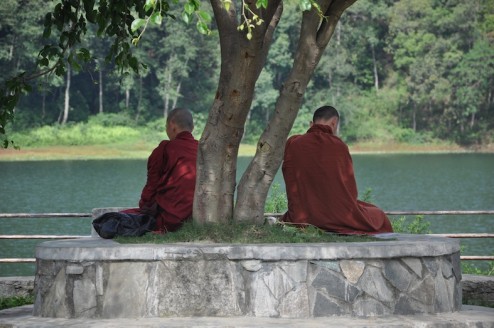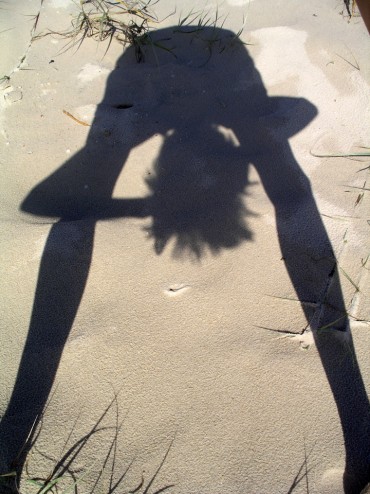“Do you know the secret?” I was surprised when, at Hickory Tavern, I met a CEO of a engineering-programming company who, while talking up his black porche and high-paid profession, brought it up. I thought only hippy and hippy-wanna-be’s like me were into this stuff.
“What’s the secret?” asked my friend, accepting their kind offer to pay for our food and drinks, and get another round.
“Five years ago I had NOTHING.” Mr Porche informed us. “And now I’m 34 with everything I’ve ever wanted: the job, the car, the house on the water…”
Ok yes he may have been trying to get into someone’s pants. Shame girls aren’t attracted to men who think money can buy all those qualities that, well, money can’t buy. Anyway… the episode did remind me about the potential power of “the secret”.
Back at home I went to my blog to find some easy way to explain it to my friend. I was surprised to find that I’ve never actually blogged about it.
I believe in the secret. Everything I’ve applied it to has worked. But come to think of it these last couple of years it kind-of dropped off my radar. I think, particularly given my recent mishaps in Europe, it’s time to put the secret into action once again.
You DON’T know the secret? Ok, we better start with the basics…
The secret is based on the “law of attraction” – the idea that “like attracts like”. If you think positive, you will get positive. If you think negative then you will get negative.
Simple? Yep. But don’t underestimate its power.
So, for example, if you think to yourself “I need more money” then you will always need more money. But if rather than focusing on the problem of needing more money, you think about the goal of “having more money”, then before you know it you will have more money.
The secret is that if you ask for something, then imagine yourself having that thing, then you will attract the opportunities for this to become your reality.
Where did “the secret” come from? It’s old old old school.
It goes back to pagan days and witch spells. Ties into prayer, chanting, rituals and meditation. Was popular in New Age circles then poplarised is 2006 in a Rhonda Byrne’s book “The Secret” followed by a TV series by that same title.
Ok it starts out a bit gay. Ok ok most of it is a bit gay. But I think it contains some worthwhile ideas. If you disagree maybe you’ll like The Chaser’s War on Everything parody of it:
http://youtu.be/usbNJMUZSwo
If, like me, you laugh so hard you cry, dry your eyes and go back to watching the longer version. It’s not a half-bad intro to thinking about the power of your thoughts and feelings, and how they connect to your experiences.
When I first watched “The Secret” I immediately put it to the test. My dreamboard in 2006 read things like “photography”, “yoga”, “pilates teacher”, “learn Spanish”, “go to South America” and “$100,000”.
The opportunity for everything on my list presented itself, much faster than I expected. I became a pilates teacher, a photography assistant and got very into yoga, all in the same year. Did I get $100k? No. But I did get a job offer with a $100k salary. I may turned it down, and realized later that none of these things was what I wanted, but that’s not the point.
My second dreamboard in 2008 read all the things my two friends and I wanted for my time in South America. Once again the opportunity for everything on that list presented itself.
How does one go about explaining this? Coincidence? Positive thinking? Maybe. But could it be something more?
The law of attraction is based on the idea that there is power in words, thoughts, and intentions. There is a power in knowing what you want, asking for it, and noticing then seizing the opportunities to get it when they arise. Expressing gratitude for what you have and developing a clear vision of what life would be like with the things you want – some of the methods they suggest – are useful things to do, whether or not some form of quantum mechanic / spiritual element is involved.
An interesting documentary that ties these ideas to quantum physics is What the Bleep do we know? Down the Rabbit Hole…
An interesting book going into different tests with these ideas is The Intention Experiment which for example describes chickens influencing robots to spend more time closer to their cage.
I’m obviously not going to claim to understand quantum physics. I borrowed a real academic book on it once and didn’t get past page 3. Hundreds of detailed massive complex mathematical equations, all which went straight over my head.
The Double-Slit Experiment is worth watching though, gives a glimpse into the kind of things that happen at quantum levels.
http://youtu.be/DfPeprQ7oGc
I understand our level of reality has a set of laws that is different to that of the quantum world. We feel solid matter. We sit on chairs without falling through them. Unlike Ewen McGregor at the end of The Men Who Stare at Goats, as far as I know no human can walk through walls.
Still what is to say that every alternative reality doesn’t exist in parallel and you, as the observer, are choosing the reality you get to experience?
When I connect the Law of Attraction with the philosophy of thinkers like Alan Watts and Fritof Capra, ideas I have probably picked up from people like Deepak Chopra and Eckhart Tolle, and from books like The Celestine Prophecy and The Alchemist, and my own experiences, and reminders from people like Mr Porche-CEO-dude-living-in-Hickory, I must conclude that there is something in the Law of Attraction that’s at least worth exploring, and its about time I start to make use of these not-so-secret secrets again.
 “The oppressors, who oppress, exploit, and rape by virtue of their power, cannot find in this power the strength to liberate either the oppressed or themselves. Only power that springs from the weakness of the oppressed will be sufficiently strong to free both.” (Paulo Freire, Pedagogy of the Oppressed, 1970: 21)
“The oppressors, who oppress, exploit, and rape by virtue of their power, cannot find in this power the strength to liberate either the oppressed or themselves. Only power that springs from the weakness of the oppressed will be sufficiently strong to free both.” (Paulo Freire, Pedagogy of the Oppressed, 1970: 21) Have you ever picked up the phone to call a friend, only to find your friend calling you? Do you notice the moments of “synchronicity” when everything you do happens with ease, green lights all the way, the right song on the radio at just the right time?
Have you ever picked up the phone to call a friend, only to find your friend calling you? Do you notice the moments of “synchronicity” when everything you do happens with ease, green lights all the way, the right song on the radio at just the right time? Have you ever noticed that when you over-think something, it all falls apart?
Have you ever noticed that when you over-think something, it all falls apart?